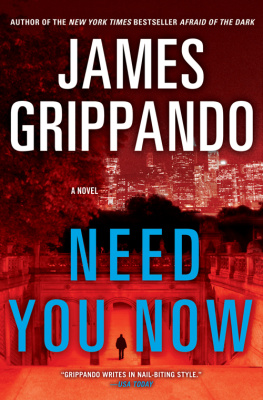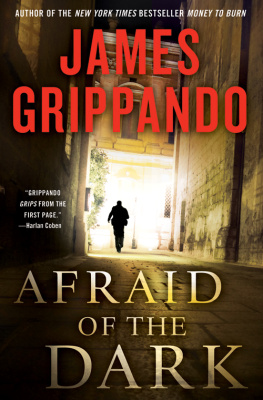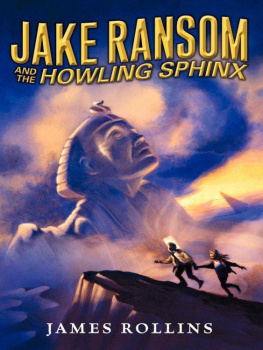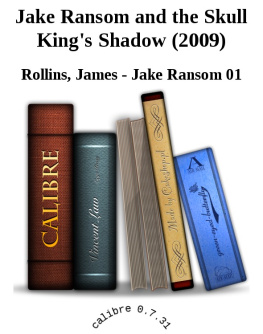James Grippando - A King's ransom
Here you can read online James Grippando - A King's ransom full text of the book (entire story) in english for free. Download pdf and epub, get meaning, cover and reviews about this ebook. genre: Detective and thriller. Description of the work, (preface) as well as reviews are available. Best literature library LitArk.com created for fans of good reading and offers a wide selection of genres:
Romance novel
Science fiction
Adventure
Detective
Science
History
Home and family
Prose
Art
Politics
Computer
Non-fiction
Religion
Business
Children
Humor
Choose a favorite category and find really read worthwhile books. Enjoy immersion in the world of imagination, feel the emotions of the characters or learn something new for yourself, make an fascinating discovery.

- Book:A King's ransom
- Author:
- Genre:
- Rating:5 / 5
- Favourites:Add to favourites
- Your mark:
- 100
- 1
- 2
- 3
- 4
- 5
A King's ransom: summary, description and annotation
We offer to read an annotation, description, summary or preface (depends on what the author of the book "A King's ransom" wrote himself). If you haven't found the necessary information about the book — write in the comments, we will try to find it.
A King's ransom — read online for free the complete book (whole text) full work
Below is the text of the book, divided by pages. System saving the place of the last page read, allows you to conveniently read the book "A King's ransom" online for free, without having to search again every time where you left off. Put a bookmark, and you can go to the page where you finished reading at any time.
Font size:
Interval:
Bookmark:
James Grippando
A King's Ransom
PART ONE
1
Some called it a crown jewel. Others said it was a diamond in the rough, with the emphasis on rough. It was a matter of perspective, whether Cartagena stood apart from the violence that besieged Colombia or was shrinking in its shadow.
It was one of the Caribbeans most striking port cities, a special blend of colonial heritage, natural beauty, and salsa into the wee hours. The top attraction was the old town, a city within the city, surrounded by nearly six miles of impressive fortress walls that were built under four centuries of Spanish reign. There were smaller marvels too, like cazuela de mariscos, a local seafood soup with chunks of cassava instead of potatoes-deliciosa! The crowded beaches on the Bocagrande peninsula werent spectacular, but white sand and turquoise seas were close enough at Playa Blanca or, even better, Islas del Rosario. Throughout the city, colonial mansions painted in pastels and electric blue stood as reminders that the overall feeling here was decidedly tropical, in no small part Afro-Caribbean. Glorified by countless artists and writers over the centuries, Cartagena continued to evoke romantic sentiments as a unique place that, despite the influx of luxury condos, managed to retain the feel of Old San Juan and Havana in its heyday. It was, after all, the official sister city to beautiful Coral Gables, Florida.
Yet behind the exotic intrigue, beyond the hopeful hype of tourist agents, lurked an element of danger that was a fact of life in modern-day Colombia. Especially for an American.
Matthew Rey had visited Colombia before and was aware of the tragic headlines. Eleven sport fishermen kidnapped on their boat off Barranquilla. Busloads of children commandeered on their way to school in Ocana, north of Bogota. More than a hundred churchgoers taken at gunpoint in the middle of a Catholic mass in Cali. As a businessman, Matthew didnt deny the risks of a country besieged by four decades of civil war. As a fisherman, he savored the natural beauty, albeit from a half mile offshore.
Matthew was in the commercial fishing business, which was big business indeed. Hed started his company in Miami with a rusted but trusted old lobster boat and a mountain of debt. Twenty years later he was part owner of Reys Seafood Company with forty boats and two processing plants in Nicaragua. With the United States importing more than eighteen million pounds of edible fish weekly from Central and South America, he was always looking for new equipment, opportunities for expansion.
It was that kind of thinking that had brought him to Colombia.
Hector! he shouted.
He got no reply. He tried again, louder. Hector!
Hector Diaz was one of six Nicaraguan crewmen that Matthew had brought to Cartagena to overhaul three old shrimp boats and bring them back to the Mosquito Coast. They were the Nina, the Pinta, and the Coco Loco. It was just a hunch, but something told Matthew they werent originally a set. All three were anchored side by side in the bay like a pontoon bridge, close enough together for the workers to step from one to the next. A noisy generator on the Pinta, the middle boat, powered the working lights and welding tools for all three, making it impossible for Matthew to be heard from one boat to the next.
He switched off the generator. The lights went out, the noise stopped. It was just past sunset, but the afterglow afforded just enough natural light for the men to see each other.
You done fixing the head yet? asked Matthew.
Hector had been working on the plumbing all afternoon. All but the marble tile and Kohler bidet, boss.
He was a habitual wisecracker but worth the trouble, as he and his son Livan could be trusted to sail just about anything from Punto A to Punto B, even three old shrimp boats. Hector was half Miskito Indian, and in Matthews book the Miskitos were the greatest fishermen on earth. For centuries their tribe had fished the Caribbean along Nicaraguas Mosquito Coast. Tall and lean, the Miskitos were natural divers, and in his prime Hector had been a top lobster diver. His skills were legendary, like the story of the time he and Matthew got lost in a blinding storm at sea. Hector promptly jumped off the boat and dived down thirty-five feet for a good look around the reef. In a matter of minutes he popped back up and told Matthew to turn the boat around and hold the course steady for about three hours. They sailed into port two hours and forty-five minutes later. Only then did Matthew fully appreciate the way the Miskitos knew their ocean-top and bottom-like their own backyard.
Matthew smiled and shouted back, joking, Youre worthless, you know that?
Thats why I work for you, boss.
Matthew snarled, but it was just a game they played. In truth, he envied Hector. Fishing had been a long tradition in the Diaz family, passed on from father to son for generations of Miskitos. Matthew had a son too, but not the same bond that Hector and Livan shared.
The sun was gone, the orange and purple afterglow fading. All along the rim of the bay, city lights emerged as twilight turned to darkness. Cartagena was coming to life. The parties would soon begin in earnest. The first time Matthew had visited the city, hed ended up playing the accordion in some bar that boasted authentic vallenato music of the local costeno people. He couldnt vouch for the music, but the one-fifty rum had delivered as promised. That was twenty years ago. Cartagena had changed much since then. Hed changed, too. Coke instead of beer and rum, and his bladder wasnt what it used to be. Just one stinking soda and already he had to break the proverbial pee seal.
He started belowdecks, then stopped, startled by the shouting up top.
?Manos arriba! Hands up!
It had come from the Nina, two boats away. Matthew climbed two rungs of the bridge ladder, just high enough to see over the clutter on the deck of the middle boat. Hector and Livan were face-to-face with five men with guns.
On impulse, Matthew dived for cover behind a huge pile of shrimp nets. From there he could see three of his crew members on the Pinta standing on deck with their hands over their heads. The fourth was crouched down in the bridge, hiding, as yet unspotted by the guerrillas. He caught Matthews eye and silently mouthed the word, Guerrilleros!
Matthews heart pounded. For all his travels, hed never actually laid eyes on armed guerrillas before. All wore ski masks, high leather army boots, and black leather gloves. Their green combat fatigues and bright red armbands were typical uniforms. One wore a cowboy hat that was flipped up on one side, Australian-style, and a grenade attached to his belt. Matthew had heard that these bands of rebels were brazen enough to dress as the guerrillas that they were, never blending into the crowd with disguises, thriving on the publicity their group garnered from their very public crimes. Theyd probably been watching the boats for hours, waiting for darkness so that they could pull up in silence and take the busy crew by surprise. That was the problem with noisy generators after sunset. If the crew was focused on work, an aircraft carrier could pull alongside them and no one would notice.
From his hiding spot, and with the generator off, Matthew was close enough to hear Hector arguing with the men in Spanish two boats away.
Wheres the American?
No American here, said Hector.
We know hes here.
You must have the wrong boats.
Whos that?
Matthew peered out from behind the nets. The guy doing the talking, the one wearing the hat, had focused on Livan.
Julio Iglesias, said Hector.
Font size:
Interval:
Bookmark:
Similar books «A King's ransom»
Look at similar books to A King's ransom. We have selected literature similar in name and meaning in the hope of providing readers with more options to find new, interesting, not yet read works.
Discussion, reviews of the book A King's ransom and just readers' own opinions. Leave your comments, write what you think about the work, its meaning or the main characters. Specify what exactly you liked and what you didn't like, and why you think so.




